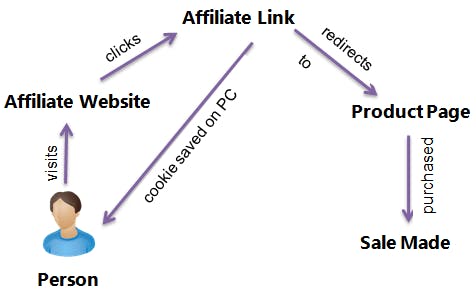
3 Ways to Avoid Unethical Affiliate Marketing Traps
In the quest to make money online, many people sadly get exposed to multiple, unethical affiliate marketing scams. This is something that has plagued the world of online marketing for some time now.
Affiliate marketing is known to be one of the most legit means to make money online. The evidence rests in the tons of true success stories being shared online.
However affiliate marketing can be perceived by many as unethical or unrealistic way to make money online.
This couldn’t be further from the truth. However, this perception is that affiliate marketing (like any thing in life) can be used for good and bad.
Think of it this way – if you’re an honest person adhering to ethical marketing practices, then you will be a great affiliate marketer. You will enjoy an undisputed success.
In this article I’ll show you some of the worst moves any affiliate marketer can do. This ensure you can easily avoid them while growing your business. It’s important to understand this while developing your marketing strategy.
You will also need to know these unethical affiliate marketing practices to avoid committing them accidentally.
The Biggest Affiliate Marketing Scam on eBay
Let’s start by shedding some light on one of the most talked about legal battles in the unethical affiliate marketing world.
In 2013 the FBI made house raids on eBay’s top two affiliate marketers who earned a combined $35 million. This is a figure which, for affiliate marketing or for any other type of marketing online, is a bit over the top.
eBay has claimed that the affiliates Shawn Hogan and Brian Dunning had been generating their affiliate income using unethical affiliate marketing practices.
eBay secretly conducted its internal investigation and tried to set a trap for them to make its case. They used a joint operation with the FBI they called “Trip Wire”.
The main issue here is that eBay claimed Hogan and Dunning used cookie stuffing (which is illegal in affiliate marketing) to boost their incomes.
However Hogan claimed his innocence and said that eBay knew of his practices. This made them a victim of eBay changing affiliate network rules or rather trying to create its own.
At the end, the cases didn’t go to trial as the affiliates chose to settle. Each was sentenced to 5 month in jail time along with a $25,000 fine.
What can you learn from this story? Regardless of how important you are to the product owner, or how much money you need personally, it is still no excuse to commit fraud using unethical internet “tricks.”
Adhering to the most ethical practices is the only safe way to make money online, or you may end up spending all your hard earned money in legal battles.
How Affiliate Marketing Can Be Manipulated
I know this title can make the mouth water, but again, unethical affiliate marketing shortcuts are not the way to succeed in life (at least not on a permanent basis). They certainly are not the way to succeed in business either.
Before you can understand how the system can be manipulated, you need to understand how it works first.
Affiliate marketing is not based on word of mouth, in the sense that the buyer goes to the product owner and tells him “I heard about you from X affiliate.”
It is full of technical details like “cookies.” It must be this way because it’s the only way to track sales referrals and award the affiliate marketers for their hard earned commissions.
The below diagram shows how affiliate marketing works from a technical perspective:

It all starts when a potential buyer visits your affiliate website.
The buyer reads your product review or sales information and clicks on your affiliate link. This this takes them to the product’s sales page where they can actually buy the product.
Next, the web viewer clicks on your affiliate link and cookie file is automatically placed on the viewers PC (you will learn about cookies later on).
When the viewer chooses to buy the product, the product owner will read the cookie file and grants an affiliate commission to whatever affiliate id was contained in this cookie file.
This is the core system of any online affiliate marketing program and for tracking sales of all products online.
This system is not flawless and it can be manipulated by more tech savvy people.
It is an automated system. So it’s not “supervised” by humans, and the only way to detect any foul play is by analyzing the affiliate’s sales and traffic data.
Top Affiliate Marketing Scam Techniques to Look Out For
As much as we hate to admit it, black hat practices can get used and can go undetected for some time. Fortunately, they eventually get found out.
There are some unethical affiliate marketing practices (black hat practices) that manage to fool the system for some time. Many others became old school and can’t fly or produce results any longer.
The complexity of the affiliate marketing scam techniques can range from simple to very sophisticated.
Let’s examine the top unethical affiliate marketing practices and how you can avoid getting involved with them.
Fraud Pitch Copy
This is perhaps the most simple and common of all unethical affiliate marketing practices.
It is when the affiliate marketer writes his product review with total dishonesty, by telling people how the product can achieve a certain much desired goal but in reality it can’t. Essentially, they don’t know or care of results, they just pitch for the income stream.
Sometimes affiliate marketers will go as far as faking income screenshots and claiming that the affiliate product is responsible for this fake income. However, they really don’t need to to make the pitch.
Presenting false claims in your product review may make people buy from you, but any legitimate digital product has a money back guarantee and customers who are not satisfied will refund it.
This will hurt the reputation of any affiliate marketer following this practice. Your whole affiliate marketing business will not exist for long using this unethical scheme.
Be honest in your product reviews, and always present its pros and cons. It is best, that you the affiliate, actually own the product or know the creator very well so you can feel sure you don’t sell smoke and mirrors.
It’s important to make sure you are promoting a top quality product so the product’s ineffectiveness wouldn’t hurt you. Ultimately, what you promote and sell will affect your personal business reputation.
Cookie Stuffing
Cookies are computer files that contain tracking data. These tracking data can be used for advertising or affiliate marketing purposes, as well as many other online “things.” So the use of cookies, is not an unethical affiliate marketing practice.
In affiliate marketing, these cookie files contain important data like:
- Your affiliate id (so you credit for a commission from your promotion effort)
- The product id (the product which the affiliate was promoting, since a company can have multiple products)
Some black hat affiliate marketers will try to create and inject a cookie file that contains their own affiliate ids.
When a person (who has the cookie file on his PC) actually buys the product, the company owning the affiliate product automatically grants the sales commission to someone not really responsible for the promotion.
You might be thinking “how can anyone inject files on my PC, I have Antivirus software!”
Well, this is where the trick gets sophisticated.
Affiliates can make anyone who visits their website to be presented by a popup window, and in this popup window the actual cookie stuffing happens.
They can also create an HTML IFrame code on their affiliate website; this IFrame can load pages within pages without actually being visible to the visitor.
The page loaded in the IFrame can be the actual affiliate link, which automatically when navigated to can stuff their affiliate cookie.
Many other HTML, Javascript and CSS coding tricks can trigger the affiliate link clicking without the visitor’s knowledge.
These techniques are most effective for popular online shopping websites like Amazon. The reason is that at some point the affiliate knows that the “stuffed” Amazon affiliate cookie is on someone’s PC that will eventually make a purchase on Amazon.
So it should be clear why this is a highly unethical affiliate marketing foul.
Summing it Up: It Pays to Avoid Unethical Marketing Traps
Use this information in two important ways.
First, knowing about these traps ensures you avoid getting talked into using them. Don’t ever use these frauds or let anyone convince you to do so.
Second, look out for them when you are buying. Particularly when reading product reviews. Ask yourself, did this person really use this product?
Instead of wasting time with these black hat affiliate marketing techniques, it is better to learn how to make money with affiliate marketing in a legitimate way. Black hat may work at first, but always ends up like like the eBay fraud. You being out of business.
Nowadays there are many sophisticated affiliate marketing techniques that can bring you honest profits and in relatively short time. Learn them and use them.
Those legitimate techniques are offered in many affiliate marketing courses and training. Find a good one, and good, honest mentor.
Read more